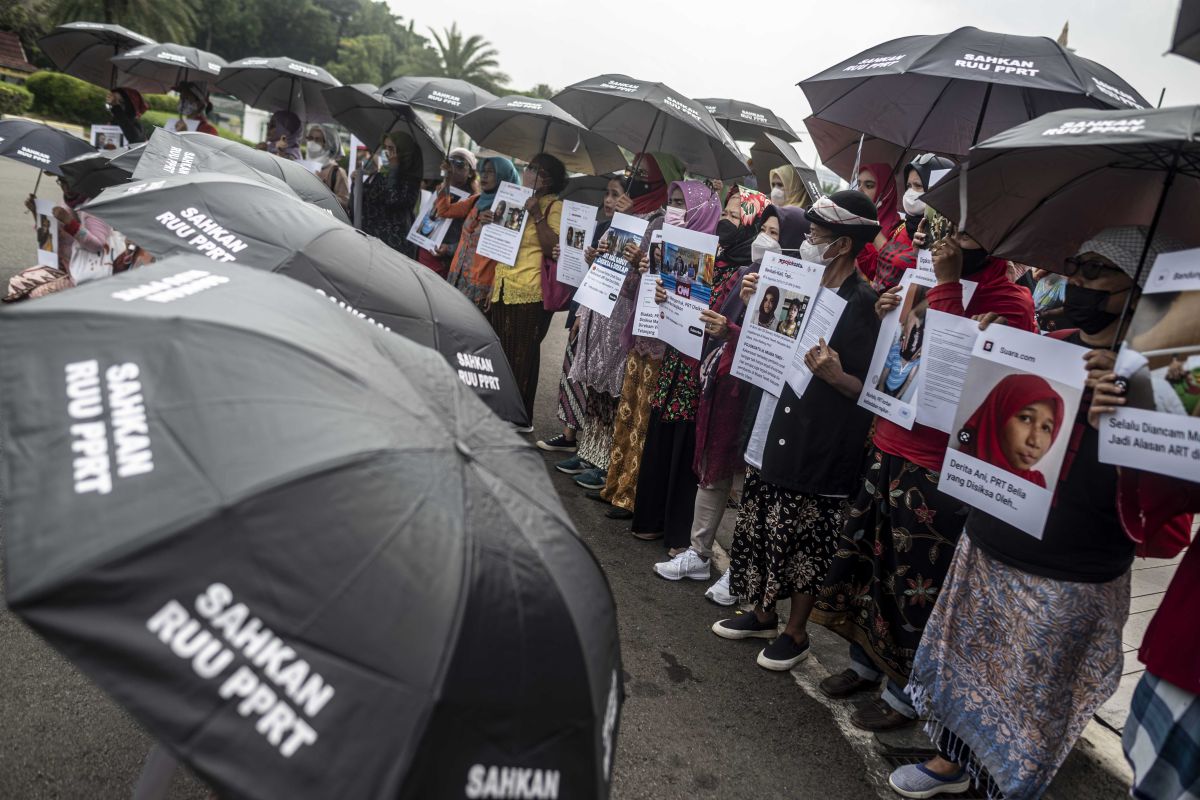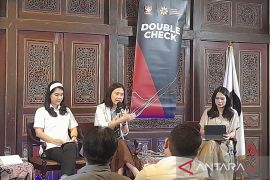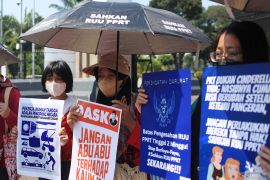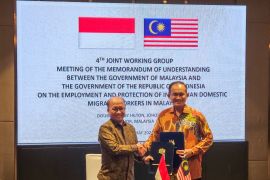The job of PRT is unique in nature and has specific characteristics in terms of work time, work place, and work relationship.
Such unique and specific characteristics make PRT vulnerable to facing various problems that can harm them and their employers.
Along with the dynamics that occur in society, PRT are no longer viewed as servants or helpers but rather as workers.
As workers, PRT have the same rights and obligations as those in other professions. Hence, as citizens, PRT have the right to be protected while fulfilling duties related to their profession.
So far, there is no labor law in Indonesia that specifically and explicitly regulates PRT.
The Domestic Workers' Protection (PPRT) bill has been through a long road to becoming a law. The bill was proposed in 2004 and was pushed to be ratified in 2009.
In 2019, the bill was included in the National Legislation Program (Prolegnas). Thereafter, in 2020, the Legislative Body of the House of Representatives (DPR) approved it as DPR's initiative bill.
However, the bill has yet to be brought to a plenary session.
Following this, the government is committed and working hard to provide protection for PRT by accelerating the enactment of the Law on the Domestic Workers' Protection (PPRT).
To speed up the enactment of the PPRT Law, President Joko Widodo affirmed that hr had ordered the Minister of Law and Human Rights and the Minister of Manpower to immediately coordinate and consult with the House of Representatives (DPR) and with all stakeholders.
According to the president, until now, the existing labor law in Indonesia does not specifically and explicitly regulate domestic workers.
It has been over 19 years that the PPRT Bill has not been passed or been stalled. The president noted that the PPRT Bill is currently included in the list of priority bills in 2023 and will become the initiative of the DPR.
The president is optimistic that this regulation would provide better protection for domestic workers, whose number is estimated to reach four million in Indonesia.
The Domestic Workers' Law can be enacted soon and provide better protection for PRT and employers as well as labor distributors, the president stated.
The PPRT Bill will indeed protect the interests in terms of the working relationship between employers and PRT. It not only regulates protection and guarantees for PRT but also for employers.
Indonesia's National Commission on Human Rights (Komnas HAM) supports the existence of Domestic Workers' Protection (PPRT) Law, saying that it would be able to improve the quality of PRT in the country.
PRT, whose skills have been neglected all throughout this time due to lack of protection and attention, can become professional workers, Head of Komnas HAM Atnike Nova Sigiro stated on the human rights commission's YouTube channel on Sunday.
According to Sigiro, by recognizing PRT as employees, government institutions, at regional and central levels, can allocate budgets and resources to improve their capability and protect them.
This means that employers need not harbor concerns, as this law will not put them in a difficult position. In fact, employers will receive better domestic workers and also legal assurance, she explained.
Employers will receive quality PRT and legal assurance, such as work contract, service, and productivity from PRT.
She also highlighted that the existence of the domestic workers protection law in Indonesia will also protect Indonesia's PRT overseas.
This is because the Indonesian Government can maintain that PRT in their country have been well-protected, so that other nations will emulate the same for Indonesian PRT, she elaborated.
To this end, several benefits can be gained if the Domestic Workers Protection Law exists, she stated.
This is certainly not the final step, but this is a necessary step to advance the rights of PRT and also human rights civilization in Indonesia, she remarked.
According to Sigiro, Komnas HAM expects that the law can be ratified by the House of Representatives (DPR) before the parliament session in 2023 ends.
The commission, along with PRT, await good news concerning the deliberation on the Domestic Workers Protection Bill.
Meanwhile, Minister of Women's Empowerment and Child Protection Bintang Puspayoga has urged the House of Representatives (DPR) to ratify the Domestic Worker Protection Bill (RUU PPRT) into law without delay.
We encourage the DPR to bring (the bill) to a plenary meeting and make RUU PPRT an initiative of the DPR, she emphasized.
Considering the previous experience in passing the Sexual Violence Crime Law (UU TPKS), differences in opinion during discussions are normal, she stated.
However, what is important is finding ways to accommodate the interests of all parties, especially PRT, in terms of recognition and protection, she emphasized.
Puspayoga said the government will encourage joint commitment and political work with the DPR and civil society to oversee the ratification of RUU PPRT.
In addition, the task force for the acceleration of deliberations on the bill will also need to immediately map out steps and strategies to push its ratification.
Puspayoga stated that the bill aims to protect PRT as part of the efforts to uphold human rights principles.
The articles in the bill contain agreements and cooperation regarding relations between employers and PRT as well as the supervision of recruiters, the minister noted.
In general, the bill will cover various aspects, such as the rights of PRT, wage regulation, protection against discrimination, and fair working period arrangements.
One of the rights regulated in this bill is the right of PRT to get a salary according to the standards set by the government, the right to get leave, the right to get health protection, and the right to get protection from violence.
With the existence of the Law on the Domestic Workers' Protection (PPRT), PRT in Indonesia can “smile”.
Their rights as workers will be protected. No more exploitation of PRT, who have to work more than 10-15 hours a day and do not get days off or leave.
Related news: Komnas HAM says PPRT Bill hopefully passed into law soon
Related news: Minister says PPRT bill pushed to protect domestic workers
Editor: Rahmad Nasution
Copyright © ANTARA 2023












